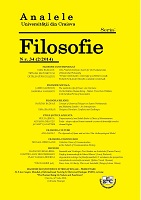THE AESTHETIC LIFE OF POWER: AN OVERVIEW
THE AESTHETIC LIFE OF POWER: AN OVERVIEW
Author(s): James GarrisonSubject(s): Aesthetics, Social Philosophy, Structuralism and Post-Structuralism
Published by: Editura Universitaria Craiova
Keywords: Post-Structuralism; Confucianism; Subjectivation; Subejctality; Subject; Power; Discourse; Ritual; Lǐ; Michel Foucault; Judith Butler; G.W.F. Hegel; Friedrich Nietzsche; Louis Althusser; Confucius;
Summary/Abstract: Subjectivation, the post-structuralist notion that contingency compels normative subjects to perform ritual norms in order to acquire recognition, autonomy and the means for survival, is a compelling theory for describing the relational bodily self. However, this notion advanced by Michel Foucault and Judith Butler focuses on the psychic life of power at the expense of its creative side, of exploring aesthetic bodily practice. Though lacking a modern critical sensibility, Classical Confucianism speaks in similar terms about ritual (lĭ) in everyday life, in its discursive, aesthetic, and normative aspects. The contemporary thinker Lĭ Zéhòu takes this basic vocabulary and expands it with his notion of subjectality, where early rituals are taken as artistic tools for the Marxian material economy of human survival, formalized in Confucianism, and sedimented with an internal structure of freedom in society's collective unconsciousness as a quasi-Kantian “noumenal humanity.” All of this is to say that, society, much like the subject, is itself contingent. Subjectality and similar approaches (like that of Bernard Stiegler) can provides complementary symmetry to subjectivation by showing how conscious attention to social formation in self-disciplined practices like tàijí quán and the martial arts can lead the body to take on a life of its own, as a different type of Other, with novel modes of self-recognition not beset by unconscious social demands. Engaging subjectivation and subjectality in a comprehensive framework advances intercultural philosophy by showing not just the nature of the relational and ritually performative self, but the possibilities for growth.
Journal: ANALELE UNIVERSITĂȚII DIN CRAIOVA. SERIA FILOSOFIE
- Issue Year: 2/2014
- Issue No: 34
- Page Range: 30-47
- Page Count: 18
- Language: English

